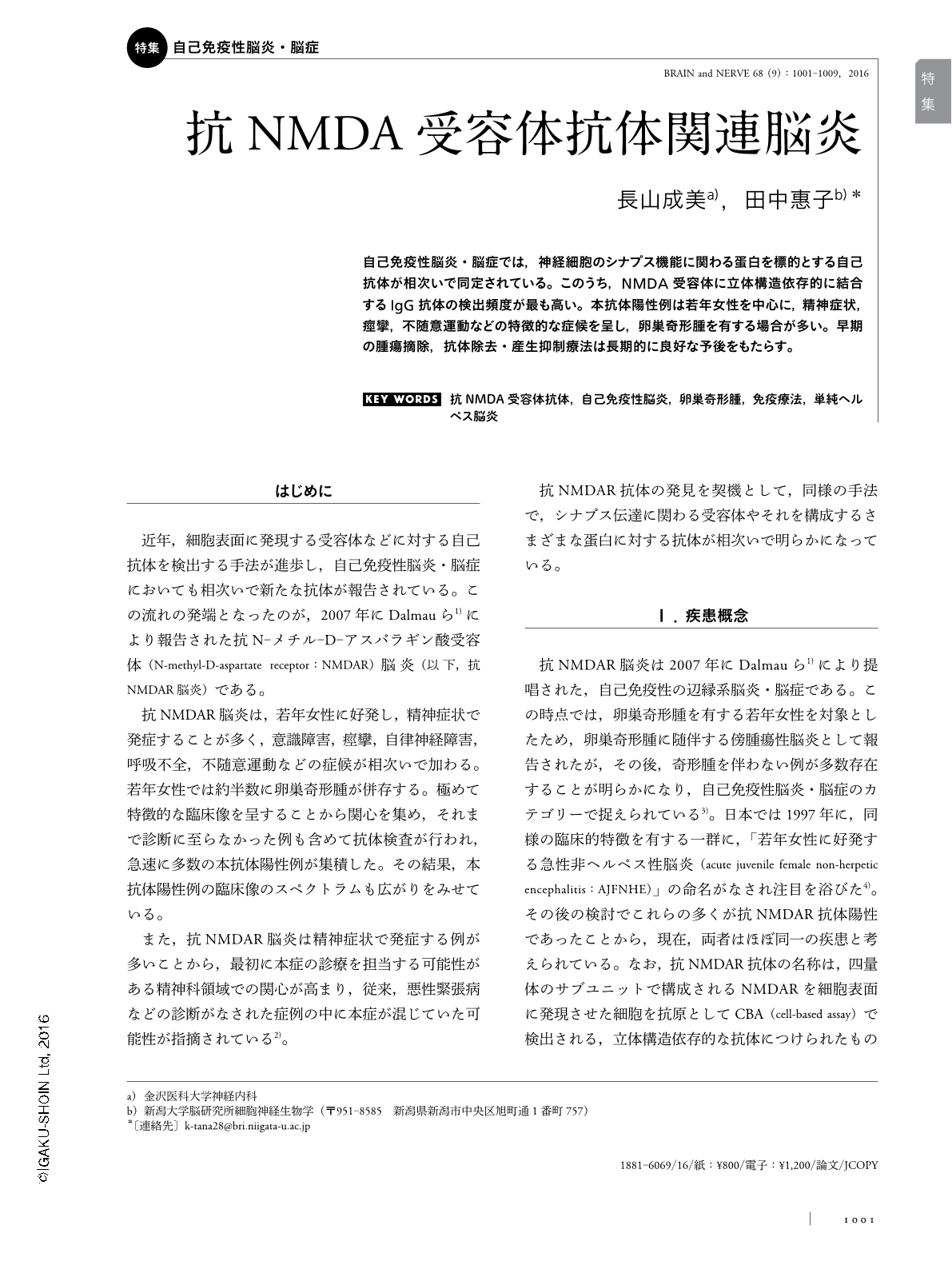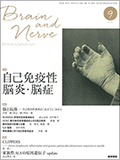Japanese
English
- 有料閲覧
- Abstract 文献概要
- 1ページ目 Look Inside
- 参考文献 Reference
自己免疫性脳炎・脳症では,神経細胞のシナプス機能に関わる蛋白を標的とする自己抗体が相次いで同定されている。このうち,NMDA受容体に立体構造依存的に結合するIgG抗体の検出頻度が最も高い。本抗体陽性例は若年女性を中心に,精神症状,痙攣,不随意運動などの特徴的な症候を呈し,卵巣奇形腫を有する場合が多い。早期の腫瘍摘除,抗体除去・産生抑制療法は長期的に良好な予後をもたらす。
Abstract
Recently, the search for diagnostic antibody markers has drawn considerable attention in relation to autoimmune encephalitis. Among the antibody markers, the most frequently detected is the anti-N-methyl-D-aspartate receptor (NMDAR)antibody. Patients with this antibody develop characteristic clinical features. This disease tends to affect young women, and starts with psychiatric symptoms followed by seizures, involuntary movements, autonomic failure, and respiratory failure. Nearly half of these female patients have ovarian teratoma.
Some of the patients with anti-NMDAR antibody show atypical clinical features. Approximately 4% show only psychiatric symptoms, which might lead to a diagnosis of malignant catatonia. Other reports describe patients experiencing refractory seizures to have the anti-NMDAR antibody. Some of the antibody-positive patients are associated with demyelinating disorders, and some develop anti-NMDAR encephalitis after recovery from herpes simplex encephalitis. It is important to test the anti-NMDAR antibody in these groups since immunotherapy ameliorates their symptoms.
The anti-NMDAR antibody binds to the constitutional epitope at the extracellular domain of GluN1 and disrupts its function. Early introduction of immunotherapy together with tumor resection will results in improvement of neurological symptoms.

Copyright © 2016, Igaku-Shoin Ltd. All rights reserved.


